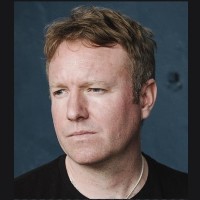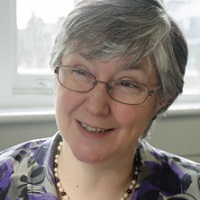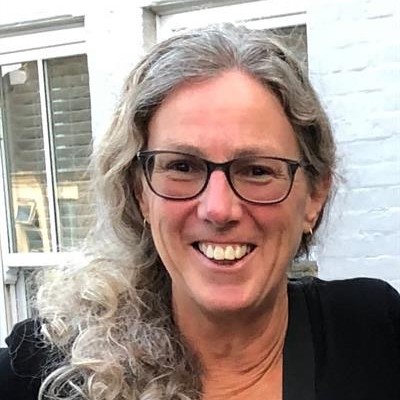Our English PhD/MPhil programme allows you to study in a vibrant academic environment in London where you can emerge as an independent scholar producing original research.
Key information
| Starting date | Deadline for application |
|---|---|
Duration
English Postgraduate research degrees PhD/MPhil course Overview
The PhD/MPhil in English provides you with academic and professional opportunities to develop as an independent, creative and original scholar. Your research will allow you to work at the forefront of the discipline.
You will be based in the international, forward-looking Department of Media, Culture and Creative Industries which has a vibrant research culture.
You will work closely with a supervisory team, whose areas of expertise correspond with your chosen research topic.
You are equipped to think critically about literary scholarship, deliver advanced new research and gain confidence as a self-directed researcher and professional.
You will conduct research in an exciting, cosmopolitan research environment in central London.
You will be able to access the University of London’s world-class research collections, attend research seminars and lecture series. You will also benefit from London’s exceptional cultural and research facilities.
Structure
You will initially register as a PhD/MPhil student. After the completion of an initial of registration, you will be eligible to submit an application for upgrading to PhD status.
Progression to PhD registration is not automatic, but contingent on the satisfactory outcome of a review process.
Subject to successful upgrade, your doctoral studies will conclude with the submission of a PhD thesis of 75,000-100,000 words. Your thesis will make an original contribution to the field, satisfy peer review and merit publication.
You will attend a viva voce examination in front of at least two examiners, at least one of whom will be external to City.
For full details about City’s PhD/MPhil programme structure, please see the Guide for Research Students.
Your progress and training needs are regularly assessed during your studies, and you will participate in a range of activities during the programme.
You are ordinarily permitted a maximum of four years to complete the full-time programme. Up to seven years are permitted to complete the part-time programme.
Full-time students are expected to dedicate themselves fully to their research, while part-time students should expect to spend at least the equivalent of two days per week on their research.
Requirements
Entry requirements
Applicants should normally:
- Hold a 2.1 Honours BA qualification or equivalent
- Hold an MA qualification with Merit or an equivalent qualification
- Have studied English, Comparative Literature, Theatre and Drama, Film and Media Studies, Creative Writing, Humanities, Publishing or other relevant subject
- Non-traditional applicants may be considered if they can demonstrate substantial research experience or evidence of relevant professional experience or publication.
English requirements
If your first language is not English, you will be expected to demonstrate Level 7.5 proficiency in the IELTS English language test.
Visa requirements
If you are not from the European Economic Area / Switzerland and you are coming to study in the UK, you may need to apply for a visa or entry clearance to come to the UK to study.
For more information see our English language proficiency requirements at City.
The way that you apply may vary depending on the length of your course. There are different rules for:
- Students on courses of more than six months
- Students on courses of less than six months
- Students on a pre-sessional English language course.
For more information see our main Visa page.
Fees and funding
Full-time Home/UK:£5,110 per year
Part-time Home/UK:£2,560 per year
Full-time International:£13,630 per year
Part-time International:£6,810 per year
Fees for doctoral candidates are charged annually and cover registration, supervision and examination.
Fees are subject to review each year and may vary during your period of registration. Where applicable, fees for City's programmes will be subject to inflationary increases in each academic year of study commencing in September. Our policy for these increases is set out in our terms and conditions of study.
Support for PhD study
Prospective students are encouraged to explore doctoral Grants and funding opportunities such as:
- Research Council studentship awards, if available.
Our bursaries are non-repayable sums of money granted by the University, usually based on need.
Our loans are repayable sums of money granted by the University or other body.
Our scholarships are when the University pays towards your Study fees. You may also be eligible for further funding.
Postgraduate Doctoral Loans
The Government has introduced a new Postgraduate Doctoral Loans scheme which can provide a loan of up to £25,000.
This will be over three years to support study for a doctoral degree.
A Postgraduate Doctoral Loan can help with course fees and living costs while you study. It can be used alongside any other forms of support you may be able to receive.
For more information, please see our Postgraduate Doctoral Loans page.
Additional expenses
Some of our degrees may involve additional expenses which are not covered by your tuition fees. Find out more about additional expenses.
Academic support
City has a well-established structure and processes to support your research.
Supervision
Each research student has a supervision team composed of at least two research-active members of staff. Your supervisors will direct your research activities, monitor progress, provide detailed feedback on written work and advise on your professional development.
Training
You are encouraged to develop your skills in key areas of researcher training. You will agree a training programme annually with the Senior Tutor for Research or your supervisors. In your first year, you will engage with the generic and subject-specific training offered at the Doctoral College and at departmental levels.
In subsequent years, you will attend specialist training sessions offered by the Doctoral College and the University of London’s School of Advanced Study. PhD students who teach benefit from access to specialist training.
City’s Doctoral College offers institution-wide research-related activities to contribute to researcher development.
Research Environment
Research students constitute an important and active part of our research culture.
We run a regular series of interdisciplinary research seminars for all members of staff and research students.
Our research students have an established seminar programme of presenting their work to each other in an informal and supportive atmosphere. Students also benefit from access to London’s world-class research and cultural facilities.
How to apply
The admission of research students is dependent upon many factors, one of which is the expertise of our academics currently available in the Department.
Potential applicants should therefore check the current research interests of staff members before making an informal enquiry. If appropriate supervisory expertise is available, potential applicants should initially approach Senior Tutor for Research, Dr Joseph Thomas, before submitting a formal application.
We accept applications on an ongoing basis for entry normally in September/ October. To apply, you should submit the following documents:
- The Online Research Degree Application Form
- A research proposal of no more than 2000 words (excluding bibliography) that succinctly outlines the aims and scope of the proposed project, your methodological approach and the project’s original contribution to knowledge
- Copies of degree certificates and transcripts
- Two academic references or contact details for two academic referees
- Proof of English language proficiency (if applicable)
You can see further guidance here on how to prepare your research proposal.
Please note that we will not consider incomplete applications.
For more information, please see the application process at City.
For further application enquiries please contact our PGR enquiries team.
Find a supervisor
See our full list of academic staff and potential supervisors in Department of Media, Culture and Creative Industries.

Dr Dominic Davies
Senior Lecturer in English and BA English Programme Director
Department of Media, Culture and Creative Industries

Dr Joseph Thomas
Senior Lecturer
Department of Media, Culture and Creative Industries

Mary Ann Kernan
Professor of Creative Practice
Department of Media, Culture and Creative Industries
Our students
See more of our current students within the Department of Media, Culture and Creative Industries.

